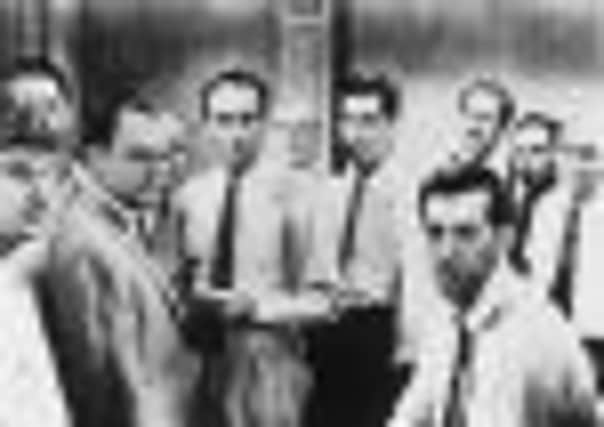Professional juries ‘should be used to determine guilt in complex cases’, says QC Donald Findlay


Holyrood’s justice committee was also warned by leading QC Donald Findlay that filming trials could put lives of the accused and witnesses at risk. Mr Findlay says he is “totally against” the idea.
Mr Findlay also said that the rise of electronic online media was now “interfering” with the justice system, while human rights lawyer Aamer Anwar said any jurors found accessing background information online about a defendant should face jail. The MSPS were taking evidence on the role of the media in the justice system.
Advertisement
Hide AdAdvertisement
Hide AdJustice campaigner Iain McKie described jurors as the “human link” in the court process, but voiced fears that the magnitude of “complex” expert evidence facing many ordinary jurors could pose problems.
“I would favour looking at professional jurors,” he said. “We’ve got to be inventive, but juries are central to the whole issue. It would not worry me having professional juries who knew what they are doing.
“I’m not talking about professors and people with degrees – I’m talking about normal people, but ones that are trained, they understand it, they want to do it.
“I think it should be looked at. It has been done in Asia. There are advantages to it, there are disadvantages to it – all I’m saying is debate it.”
Mr McKie was at the heart of a lengthy campaign which eventually saw his policewoman daughter Shirley cleared of lying under oath after insisting the fingerprint found in the home of murder victim Marion Ross in 1997 did not belong to her. She later received £750,000 from the then Scottish Executive in an out-of-court settlement.
However, Mr Findlay warned a move to professional juries would be a “seismic shift” in the way Scottish courts operate.
A recent pilot also saw TV cameras film the sentencing of David Gilroy for the murder of Edinburgh book-keeper Suzanne Pilley. Mr Findlay said he did not have a problem with this, but that he drew the line at filming trials where the public would be taking part as witnesses or defendants.
“You put pressure on witnesses – it’s difficult enough to get people to come forward,” he added. “You put pressure on the citizen, the accused. If you are acquitted, why should you have your image blasted into every home by the television?
Advertisement
Hide AdAdvertisement
Hide Ad“People who are convicted or acquitted of serious criminal charges could have their lives at risk because there are people out there who would like to seek vengeance.”
The filming of trials is routine in US courts.
Mr Anwar called for a crackdown on jurors who go online to find out if the defendant has any previous convictions. This is normally withheld from jurors to avoid the risk it may prejudice them against the accused.
“We’ve reached the stage now where judges’ directions have to be in a language that is clear and unequivocal and for jurors to realise that if they do take the step of going home and researching and downloading material and this was to arise, then they could be sent to prison for it.
“It’s not a question of policing the internet, but it is a question of making sure the jury system remains what it is, the jewel in the crown of the Scottish legal system.”